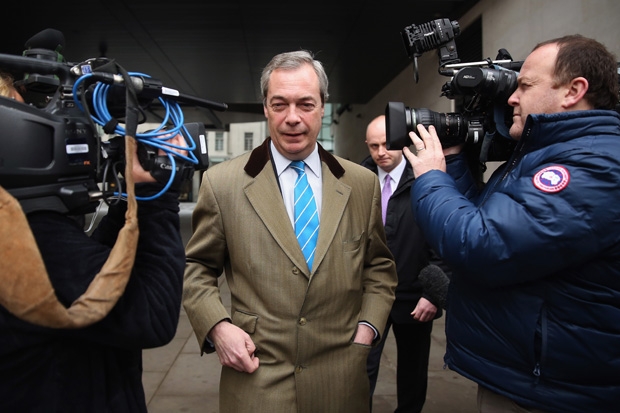There was a remarkable scene in one BBC Today programme morning meeting in about 1995, as all the producers gathered together to discuss what stories would be on the following day’s show.
The big story was the European Union; the splits occasioned by the EU within the Tory party and the battle, on the part of racist neanderthal xenophobes, to keep us out of the Exchange Rate Mechanism, from which we had ignominiously exited three years before. The meeting cackled and hooted at the likes of Bill Cash and his assorted fascists on the Eurosceptic right. ‘They think the Germans are determined to dominate Europe!’ and ‘They’re just racists!’ and ‘They’re all old Monday Club little Englanders!’ How everyone laughed. And then a voice suddenly cut through this jubilant unanimity.
‘What if they’re right?’
Cue an immediate silence and deep mystification and astonishment. People looked at one another with incredulity, as if the Hindu smallpox deity Sitala had suddenly manifested herself in the greenroom. Right? Right not to join the single European currency? Right to fear that the EU was perhaps prone to stretching its remit a little here and there? Are you mad? The thought that Cash and co. might be right had simply not even occurred. It was absolutely clear — as a very senior BBC executive said to me a few years later, about the Eurosceptics: ‘You do realise, Rod, that these people are mad?’
Problem was, in this particular morning meeting, the voice of questioning dissent came from the programme’s then editor, Roger Mosey. So the producers suddenly had to entertain the possibility, for the first time, that there might be a shred, an iota, of substance in the Eurosceptic arguments.
You may have heard of Mosey as a consequence of a book he has written, which is now being serialised, about the BBC.









Comments
Join the debate for just £1 a month
Be part of the conversation with other Spectator readers by getting your first three months for £3.
UNLOCK ACCESS Just £1 a monthAlready a subscriber? Log in